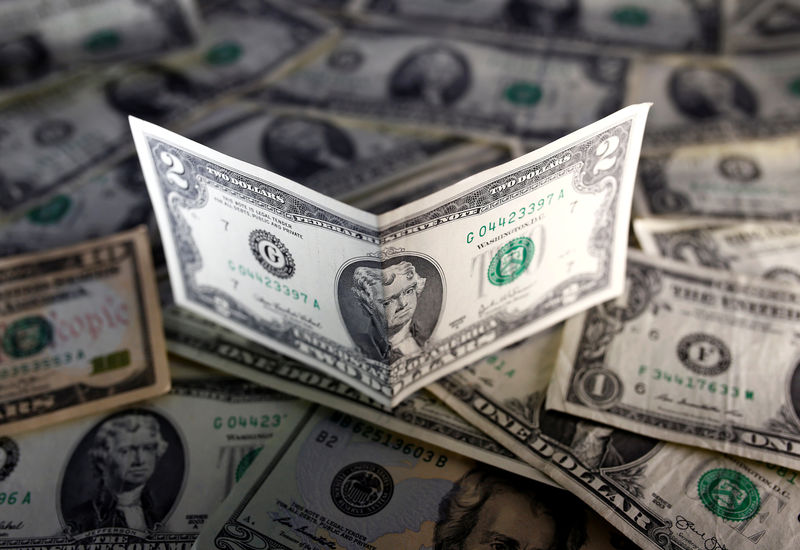Bullish indicating open at $55-$60, IPO prices at $37
By Noreen Burke
Investing.com - The U.S. dollar steadied on Wednesday after three days of declines but stayed on the defensive amid expectations that the Federal Reserve could cut interest rates in the coming months to support the economy as coronavirus continues to spread around the world.
Against a basket of currencies, the dollar was at 98.96 by 03:30 AM ET (830GMT), having now lost 0.9% since it reached a three-year high last week.
The greenback initially rose as the virus spread, boosted by the perceived relative strength of U.S. financial assets. But with the outbreak spreading further around the world investors no longer see the U.S. economy immune and have started to bet the Fed will have to cut rates to offset the economic fallout from measures put in place to try to contain the virus.
The U.S. Centers for Disease Control and Prevention (CDC) warned Americans on Tuesday to prepare for a likely pandemic.
That warning contradicted claims by White House economic advisor Larry Kudlow, who told CNBC that “We have contained this, I won’t say airtight, but pretty close to airtight.”
Asia reported hundreds of new coronavirus cases on Wednesday, including the first U.S. soldier to be infected and outbreaks in Italy and Iran spread to other countries.
The dollar pushed higher against the yen, to trade at 110.47, below the 10-month high set last Thursday after three straight days of losses.
The euro was holding steady at 1.0876, having regained ground since it hit near three-year low of 1.0778 on Thursday.
Treasury yields eased from record lows, with the yield on the benchmark 10-year Treasury note ticking up to 1.352%, while the yield on the 30-year Treasury bond was also up to 1.835%.
Concerns about the global economic impact of the coronavirus sent yields on safe-haven Treasuries to record lows on Tuesday.
In contrast to the Fed, the world's other major central banks such as the European Central Bank and the Bank of Japan have limited room for easing with their policy rates already at record lows.
"Markets had been under-estimating the risk of coronavirus but I think that phase is over by now," said Tatsuya Chiba, manager of forex at Mitsubishi Trust Bank.
Chiba said the risk-off mood is likely to linger for another month or so until the market reach the extreme in the opposite direction by over-estimating the risk.
"I would think we will see the peak of fears when people become seriously worried about an epidemic in the United States."
The risk-sensitive Australian dollar was close to eleven-year lows at 0.6579.
--Reuters contributed to this report
